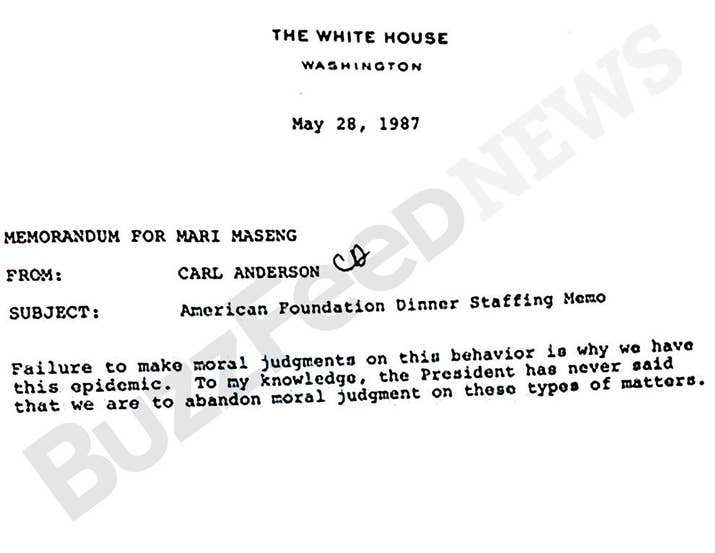Wow, if this isn't gaslighting, I don't know what is...the history is everywhere, readily available when googling like anything related to the Reagans and AIDS:
- C. Everett Koop, Reagan's Surgeon General, indicates that he was excluded from the Executive Task Force on AIDS established in 1983; despite feeling that "if ever there was a disease made for a Surgeon General, it was AIDS...[he was] for the first four years in office prevented from addressing the nation's most urgent health crisis...because transmission of AIDS was understood to be primarily in the homosexual population and in those who abused intravenous drugs."..."The president's advisers, Koop said, "took the stand, 'They are only getting what they justly deserve.'"
No, what's "fake news" is your disingenuous gaslighting...as
@Goro recalled, he was referring to the fact that Reagan waited until 1987 to mention AIDS in a speech, which should have been a ready inference for you given the context and the dates...
Speaking of--let's not forget Rock Hudson's
dying plea to Nancy Reagan for help, and her lovely reply declining to do anything; or President Reagan's change in Dr. Koop's language when he finally did give the speech, from "Passing moral judgments is up to God" to "Final judgment comes from God..." Perhaps he had listened to the advice of his advisor, Carl Anderson, who wrote in a memo contemporaneously, "Failure to make moral judgments on this behavior is why we have this epidemic. To my knowledge, the President has never said that we are to abandon moral judgment on these types of matters”
